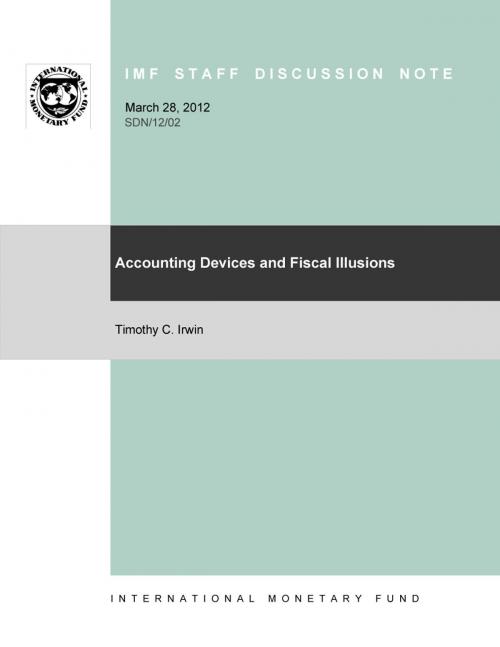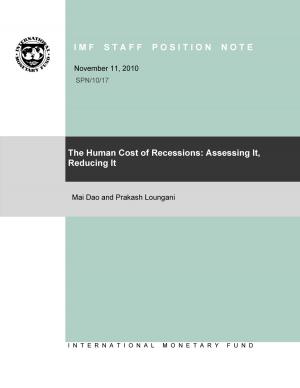Accounting Devices and Fiscal Illusions
Business & Finance, Economics, Money & Monetary Policy, Macroeconomics| Author: | Timothy Irwin | ISBN: | 9781475571325 |
| Publisher: | INTERNATIONAL MONETARY FUND | Publication: | March 28, 2012 |
| Imprint: | INTERNATIONAL MONETARY FUND | Language: | English |
| Author: | Timothy Irwin |
| ISBN: | 9781475571325 |
| Publisher: | INTERNATIONAL MONETARY FUND |
| Publication: | March 28, 2012 |
| Imprint: | INTERNATIONAL MONETARY FUND |
| Language: | English |
This proposed SDN would survey the various accounting stratagems which governments have used to meet fiscal targets—thereby sidestepping the need for true adjustment—and suggest remedial actions to limit this type of fiscal non-transparency. Types of creative accounting to be covered would include, for instance, currency swaps to hide a debt build-up (as in Greece in 2001–07), sale and leaseback of government property (for example, in the United States), assumption of long-term pension obligations in exchange for short-term revenue (Argentina, Hungary, and other Eastern European countries), use of public-private partnerships to defer the recognition of investment spending (for instance, Portugal), and reliance on non-cash compensation (such as pension rights) to reduce measured wage bills (in the United States, United Kingdom, etc.) As is evident from the examples given, these fiscal tricks have recently come under increased international scrutiny, highlighting the importance of good fiscal reporting, accounting, and transparency in general, for avoiding unpleasant surprises, ensuring government accountability, and containing fiscal vulnerabilities.
This proposed SDN would survey the various accounting stratagems which governments have used to meet fiscal targets—thereby sidestepping the need for true adjustment—and suggest remedial actions to limit this type of fiscal non-transparency. Types of creative accounting to be covered would include, for instance, currency swaps to hide a debt build-up (as in Greece in 2001–07), sale and leaseback of government property (for example, in the United States), assumption of long-term pension obligations in exchange for short-term revenue (Argentina, Hungary, and other Eastern European countries), use of public-private partnerships to defer the recognition of investment spending (for instance, Portugal), and reliance on non-cash compensation (such as pension rights) to reduce measured wage bills (in the United States, United Kingdom, etc.) As is evident from the examples given, these fiscal tricks have recently come under increased international scrutiny, highlighting the importance of good fiscal reporting, accounting, and transparency in general, for avoiding unpleasant surprises, ensuring government accountability, and containing fiscal vulnerabilities.















